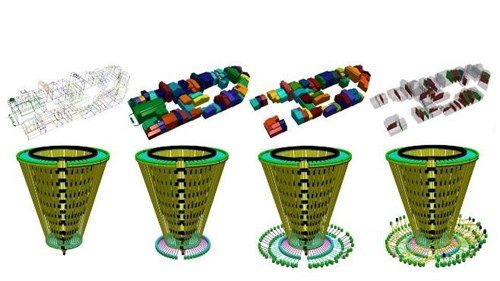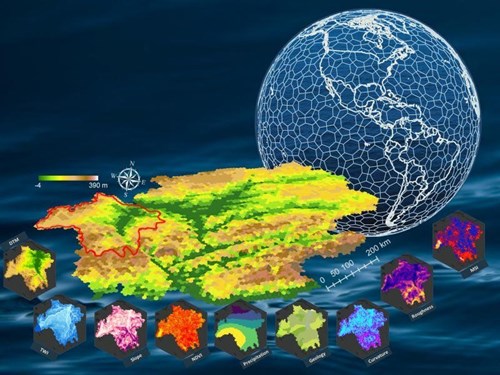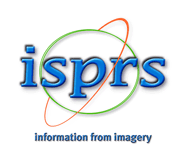Geospatial Week 2025, Dubai, UAE
Data Management and Data Quality for Remote Sensing Scenarios
Joint workshop of ISPRS WG IV/4 “Data Management for Spatial Scenarios” and ICWG III/IVb “Remote Sensing Data Quality”
The access to analysis-ready data is a milestone for efficient analyses of remote sensing data. However, without efficient data management and data quality processing, trustworthy analyses are difficult to achieve. The preparation, modelling, management and integration of geometric, topological, semantic and temporal data from a broad range of sources are challenging. Furthermore, data quality segregates and depict the borders between what can be accepted, should reject and moreover to advice the reliability of systems, including the remote sensing operations as it forms a substantial fragment of geospatial data source. Quality aspects and challenges of that can include sensor parameters, signal processing, image preparations and enhancement, data extraction, interpretation, classification, and thus thematic applications.
Especially, when using AI driven processes that include “black box” approaches like Deep Neural Networks for processing, the input data quality is one of the crucial parts to correct and bias free learning. Besides false data, actively compromised data or biases inside data sets represent some of the challenges when working, especially, with large data sources.
In this workshop, we welcome contributions from practice as well as from academia. The workshop provides a platform to discuss new ways and best practices to prepare, model and manage multi-dimensional geospatial and remote sensing data for static and (near) real-time applications. The workshop will be part of the ISPRS Geospatial Week 2025, hosted by Mohammed Bin Rashid Space Centre, Dubai, in parallel with a number of related workshops. The event is a one-day single-track workshop of oral presentations and poster sessions in the context of the ISPRS Geospatial Week 2025.


Themes of event:
- Big Geospatial Data: Preparation, Modelling and Management
- Efficient Data Management for Remote Sensing Scenarios
- (nD) Data Cubes
- Smart Data Accessibility
- Advanced Data Management for Real-Time Scenarios (Smart Cities etc.)
- Natural Language Support for the Retrieval and Visualization of Geospatial Objects
- Advanced Geospatial Database Applications
- Data Quality for Deep Neural Networks
- Data quality requirements in disaster management
- Automated quality control schemes
- Sensor system settings effects on data quality
- Interpretation, classification, and thematic uncertainty
Scientific Committee:
- Hussein M. Abdulmuttalib, Dubai Municipality, United Arab Emirates
- Mulhim Al Doori, University of Science and Technology, Fujairah, United Arab Emirates
- Mike Batty, University College London, United Kingdom
- Peter Baumann, Jacobs University, Germany
- Filip Biljecki, National University of Singapore, Singapore
- Thomas Blaschke, Paris Lodron University Salzburg, Austria
- Patrick Bradley, Karlsruhe Institute of Technology, Germany
- Martin Breunig, Karlsruhe Institute of Technology, Germany
- Christophe Claramunt, Naval Academy Research Institute, France
- Volker Coors, HFT Stuttgart, Germany
- Ihab Hamzi Hijazi, Technische Universität München, Germany
- Umit Isikdag, Istanbul Technical University, Turkey
- Mojgan A. Jadidi, York University, Canada
- Zsófia Kugler, Budapest University of Technology and Economics, Hungary
- Paul Vincent Kuper, Karlsruhe Institute of Technology, Germany
- Morakot Pilouk, ESRI Inc., USA
- Jacynthe Pouliot, Laval University, Canada
- Alias Abdol Ramhan, University Technology Malaysia, Malaysia
- Emmanuel Stefanakis, University of Calgary, Canada
- Sisi Zlatanova, University of New South Wales, Australia
- ÁRPÁD BARSI, Budapest University of Technology and Economics, Hungary
- SZABÓ GYÖRGY, Budapest University of Technology and Economics, Hungary
and others tba.
Publication of the workshop contributions:
Accepted full papers and extended abstracts will appear at ISPRS Annals and ISPRS Archives, respectively, dedicated to this symposium after the peer-review process.
WG IV/4






